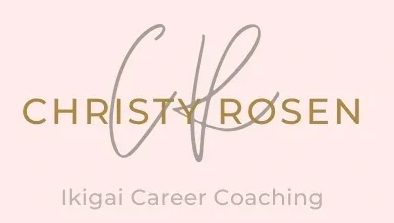“At 55 years old, I feel so lost relative to my career.” This is something I hear quite often. People seem lost and don’t know how to pivot when life changes — empty nesters, job loss, long term under/unemployment.
I generally start off with a series of questions to help guide them to a better understanding of what they are naturally good at, what they enjoy and how they envision happiness. This conversation then leads to career opportunities.
What are your personal and professional strengths; what do others think are your strengths?
Many times people will start talking about skills and strengths that they didn’t realize could be great indicators of career options. After some discussion most people will start to think about how people tell them how articulate they are, or have a gift for writing, communicating or how kind and understanding they can be or how analytical they are. The best way to identify your strengths is not only self-reflection, but asking people around you that know you personally and professionally. Getting a fresh perspective can be eye-opening. It also makes sense to take some inventories like the Strong Assessment, Myers-Briggs, etc.
What excites you?
It’s important to know what causes that rush of excitement? When you are able to find areas of your life that create excitement, it can open doors. A client once said that they enjoy the excitement/fear right before giving a toast at weddings (they were in their twenties and going to lots of weddings). They ended up being a very successful trainer / public speaker. It is important not to rule out areas in our lives that create happiness and excitement when looking at transitioning careers or starting out. In the end, you will not only be happier, but more successful if you find something that puts a smile on your face.
What does success look like to you?
This is always an interesting question to ask people. Based on responses it becomes very clear what success looks like. Some prefer work-life balance while others look for financial success and recognition. They slowly paint a picture of where their priorities lie, what they value most, and their view of success. This provides great insight into how a person is wired and what possible careers could provide ‘success’ for them.
What skills are you lacking that you wish you had?
This is another way to look at where you stand relative to professional and people skills. Taking an ‘inventory’ of the skills you have vs. the skills you lack can allow you to focus on how to improve or seek skill-based certifications/knowledge to improve your chances for new opportunities, transitioning careers. Do you have or lack strong EQ (Emotional Intelligence)? Having strong EQ can open a lot of different career doors since so many employers are looking for people with strong EQ. If you have struggled in this area based on past performance reviews, etc. then you might want to seek out a professional career coach or life coach to help navigate and build this deficit. Thinking about job opportunties and what skills have kept you from landing that dream job allows you to build skills through certifications, extra schooling, etc.
In the end, the more you reflect on what you are truly passionate about generally leads you in the right direction for career opportunities. When we try to fit a square peg into a round hole is when we start banging our heads against the wall.
Being true to ourselves and identifying our strengths and weaknesses go a long way in identifying career opportunities.
